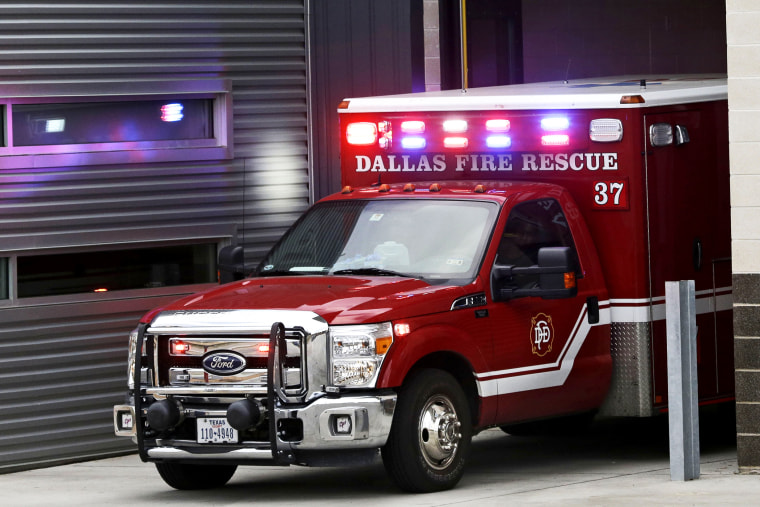Ten experts from the Centers for Disease Control and Prevention (CDC) have arrived in Texas to assist state and local health officials with investigating the first Ebola case diagnosed in the United States, the organization said in a press release Wednesday. The patient, who flew into Dallas on September 20, has now been identified as Thomas Eric Duncan, a resident of Monrovia, Liberia.
According to the CDC, the team arriving in Dallas to help with the Ebola response consists of three senior scientists with expertise in public health investigations and infection control, a communications officer, five Epidemic Intelligence Service officers (the CDC's disease detectives), and a public health adviser.
Among other responsibilities, the experts will make sure Duncan is receiving proper treatment and staying in isolation, conduct interviews to obtain detailed information about his travel history and exposure, identify and monitor people who had close contact with Duncan, and make sure health workers show no signs of the disease themselves.
"We are stopping Ebola in its tracks in this country," CDC Director Tom Frieden said in the release. "We can do that because of two things: strong infection control that stops the spread of Ebola in health care; and strong core public health functions to trace contacts, track contacts, isolate them if they have any symptoms, and stop the chain of transmission. I am certain we will control this."
News of the CDC's boosted response comes hours after Texas Gov. Rick Perry announced that some "school-aged" children had come into contact with Duncan. The Dallis Independent School District (ISD) was made aware of the fact that five students attending four district schools may have been exposed to Ebola, but said in a press release that the students were not presenting any symptoms. In order for Ebola to spread, an individual carrying the disease has to be symptomatic.
Duncan tested positive for Ebola at the Texas Health Presbyterian Hospital in Dallas, the CDC confirmed Tuesday, marking the first diagnosis of the deadly disease on American soil. A hospital spokesperson said Wednesday that the patient was in serious but stable condition.
Related: CDC confirms first case of Ebola in the U.S.
Duncan first arrived at the Dallas hospital on Sept. 26, but was ultimately sent home for two days, during which he stayed with a relative, according to NBC News. Duncan didn't display any obvious signs of Ebola, officials said. He later returned to the hospital by ambulance and was treated as a potential Ebola case.
Duncan's nephew, Joseph Weeks, told NBC News that his uncle wasn't treated for Ebola until Weeks personally called the CDC.
"I feared other people might also get infected if he wasn't taken care of, and so I called them to ask them why is it a patient that might be suspected of this disease was not getting appropriate care?" Weeks said.
Officials in Texas said health care workers had tested negative for Ebola, and that there were no other suspected cases in the state.
Because Ebola spreads though contact with bodily fluids, unlike airborne diseases, health experts are confident it won’t spread in the U.S., which has a far more sophisticated medical infrastructure than that of West African nations, where the current Ebola epidemic has killed over 3,300 people, according to the World Health Organization (WHO.) Countries affected include Guinea, Liberia, Nigeria, Senegal, and Sierra Leone.
Nevertheless, health officials are taking great pains to closely monitor any person who may have come into contact with Duncan during the time he was contagious. That kind of surveillance has proved successful in Nigeria and Senegal, where no new infections have been reported since the beginning of September. No more than a “handful” of people in the U.S. are likely at risk, Frieden said Tuesday.
Speaking at the Global Health Security Agenda Summit in Washington, D.C., last week, President Obama called the Ebola epidemic a “security threat” and pledged to lead a stronger international response. More than 3,000 military troops will join about 150 personnel from the Department of Defense and USAID already on the ground in Liberia, the Pentagon announced Tuesday, in a mission that could cost as much as $1 billion.
